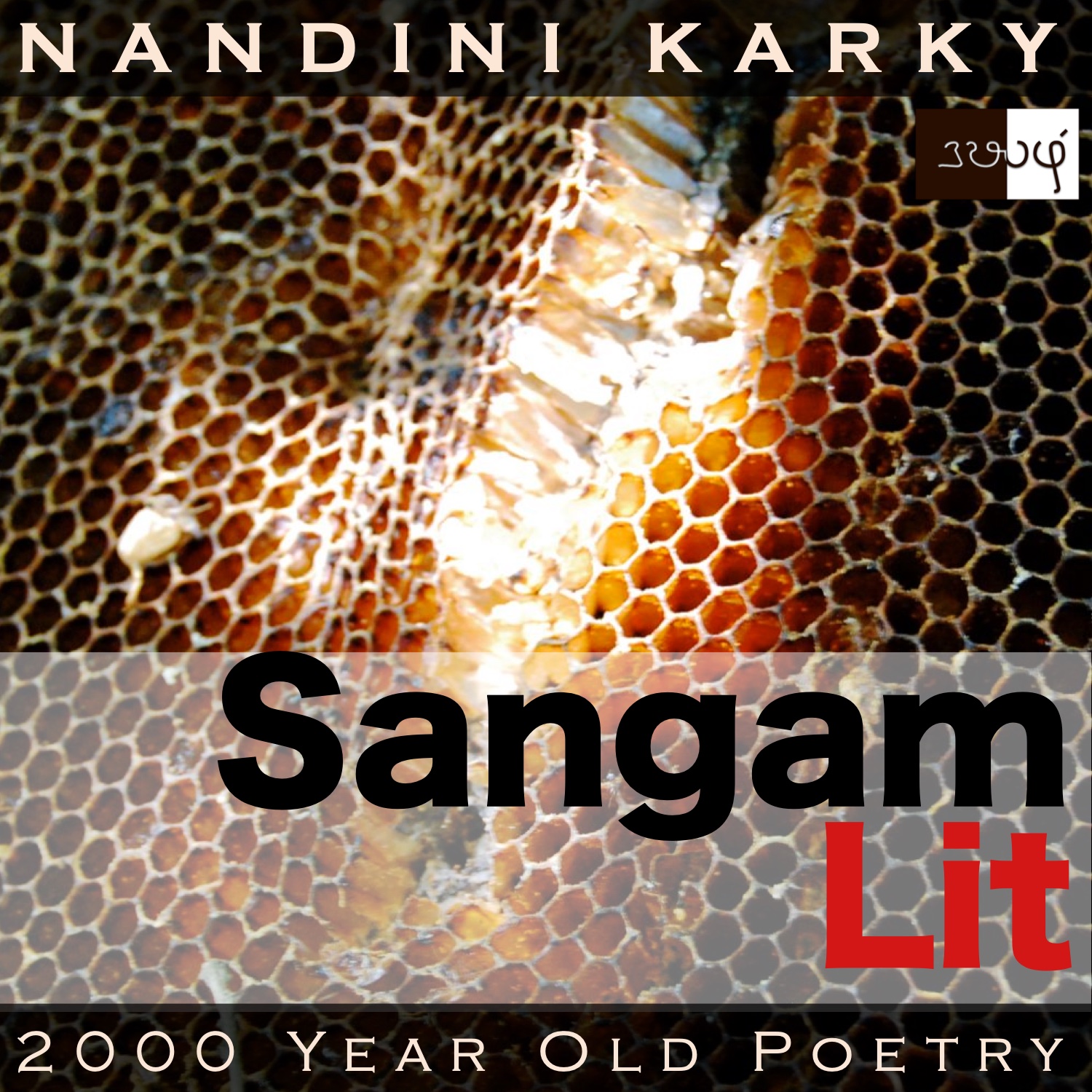Podcast: Play in new window | Download
Subscribe: Apple Podcasts | Spotify | Amazon Music | Android | iHeartRadio | TuneIn | RSS | More

In this episode, we hear reassuring words rendered in a moment of another’s anxiety, as portrayed in Sangam Literary work, Kurunthogai 273, penned by Siraikudi Aanthaiyaar. Set in the drylands of ‘Paalai’, the verse speaks in the voice of the confidante to the lady, when the lady was worried that the man would part away from her.
அல்குறு பொழுதில் தாது முகை தயங்கப்
பெருங் காடு உளரும் அசைவளி போல,
தண்ணிய கமழும் ஒண்ணுதலோயே!
நொந்தனஆயின், கண்டது மொழிவல்;
பெருந் தேன் கண்படு வரையில் முது மால்பு
அறியாது ஏறிய மடவோன் போல,
ஏமாந்தன்று, இவ் உலகம்;
நாம் உளேம் ஆகப் பிரியலன் தெளிமே.
‘It’s but a momentary foolishness’ declares this verse. The opening words ‘அல்குறு பொழுதில்’ renders the time of the day for it means ‘at night’. In the words ‘பெருங் காடு உளரும் அசைவளி’ meaning ‘a gentle wind that blows through a huge forest’, we can feel the touch of a soft breeze on the skin. ‘A huge honeycomb as can be seen in the high hills here’ can be spotted in ‘பெருந் தேன் கண்படு வரையில்’. The phrase ‘முது மால்பு’ meaning ‘an old bamboo ladder’ gives a hint about the unstable, rickety nature of such a ladder. Ending with the words ‘பிரியலன் தெளிமே’ meaning ‘know this well that he will not part away’, the verse brims over with encouragement.
Breezes, beehives and bamboo ladders seem to symbolise something significant here. The context reveals that the man and lady were leading a happy, married life when the lady felt the man was deciding to part away from her in quest of wealth and this filled her with angst. To the worried lady, her confidante says, “When night falls, a swaying breeze caresses pollen-filled buds in the huge forest. Akin to that, is your cool and fragrant forehead, my friend. As you are tormented, I will say what I know. Akin to how a foolish man would step on an old bamboo ladder, when he sights a huge honeycomb in the mountains, this world may be in folly. But know this, that he shall not part when you live!” With these words, the confidante allays the lady’s worry and informs her that she knows for sure that the man will not part away from the lady.
Time to explore the nuances. The confidante starts by talking about a breeze that blows at night time through a forest and in its journey brushes against many a pollen-filled bud. Imagine how cool and fragrant such a breeze would be! That’s how your forehead is, the confidante tells the lady. After calming her friend with such words of praise, the confidante comes to the matter at hand and says she’s going to say what she knows because she can see the lady is much worried about the man’s parting. Instead of rendering any direct details, the confidante talks about a huge honeycomb hanging high above in a hill, and how upon glimpsing that, a person decides to step on an old bamboo ladder lying there. What would happen then? The foolishness of that person would be revealed, for after taking a step or two, the rickety ladder would fall apart and bring down the person and his dream of reaching the high honey. The world is easily fooled in such a manner, the confidante says. After describing that scene, she renders the words that as long as the lady is alive, the man will never part from her.
What conviction and trust in the man! When we probe into the reasons for this, we realise that the confidante knows that it was indeed true that the man was contemplating on parting away but when he understood his lady would lose health and maybe, even her life, if he did so, he gave up that desire, akin to how a person, seeing a faraway honeycomb decided to reach for it, but realising how foolish he was, to use an old ladder, he later gives up that desire. Note how the confidante doesn’t call the man as that foolish person but projects it on the world. Perhaps, it would be stepping out of her place to say that the man was thus foolish in contemplating a quest for wealth leaving the lady. While the objective here seems to be to convey the man’s decision not to part away and to reassure the lady, we can turn our eyes to that nuanced image of the foolishness of choosing a rickety ladder to reach for a honeycomb up above. To me, the verse seems to say two things: One, a dream will fall apart if one does not pay attention to the right resources needed to reach that, like the rickety ladder in the hills, and two, it’s perfectly fine to change your decision about something when the situation demands it, like the man in this verse, who gives up his quest to search wealth for his lady’s sake!




Share your thoughts...